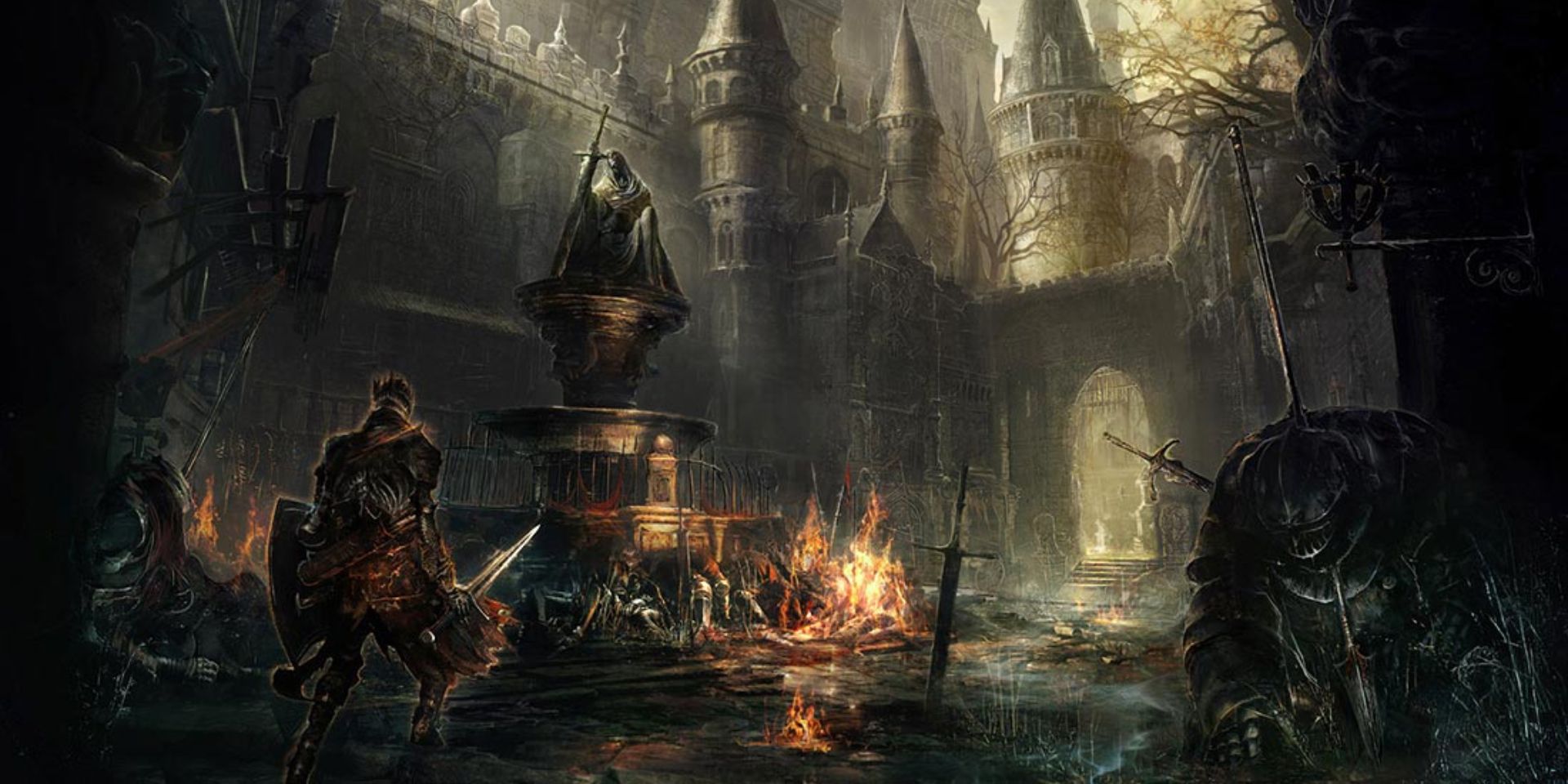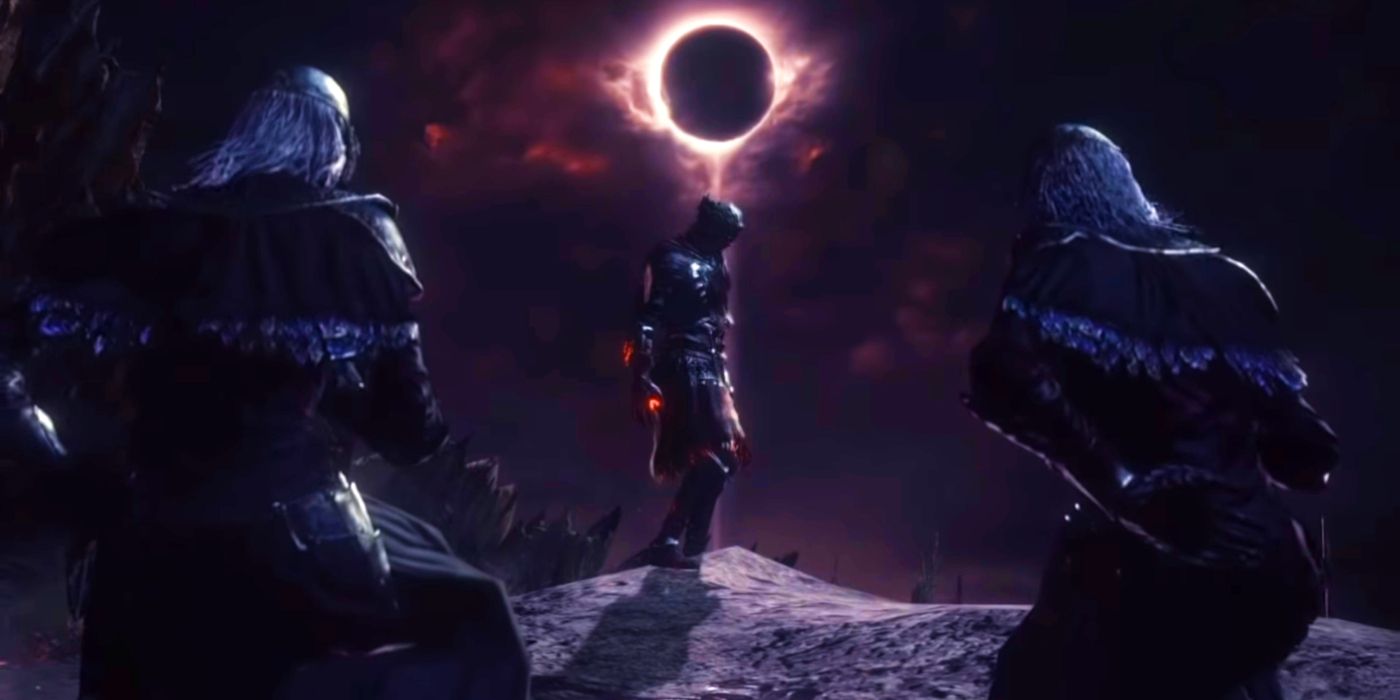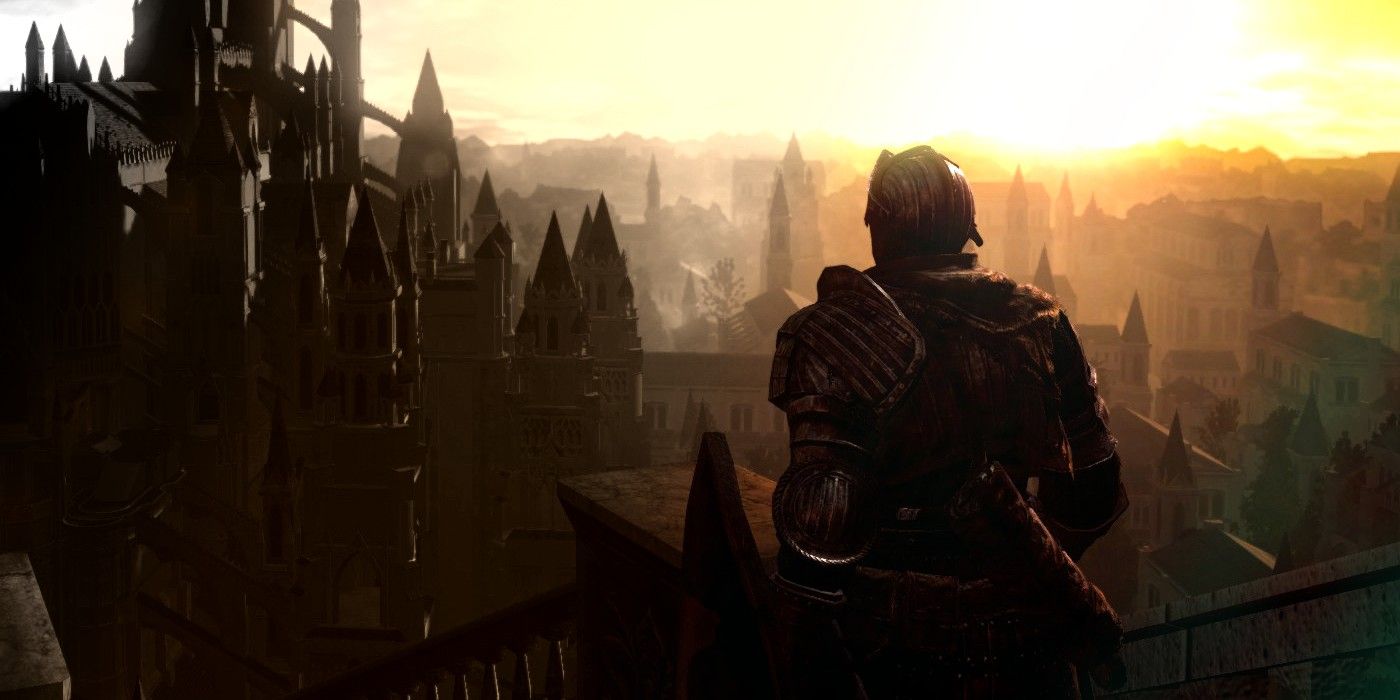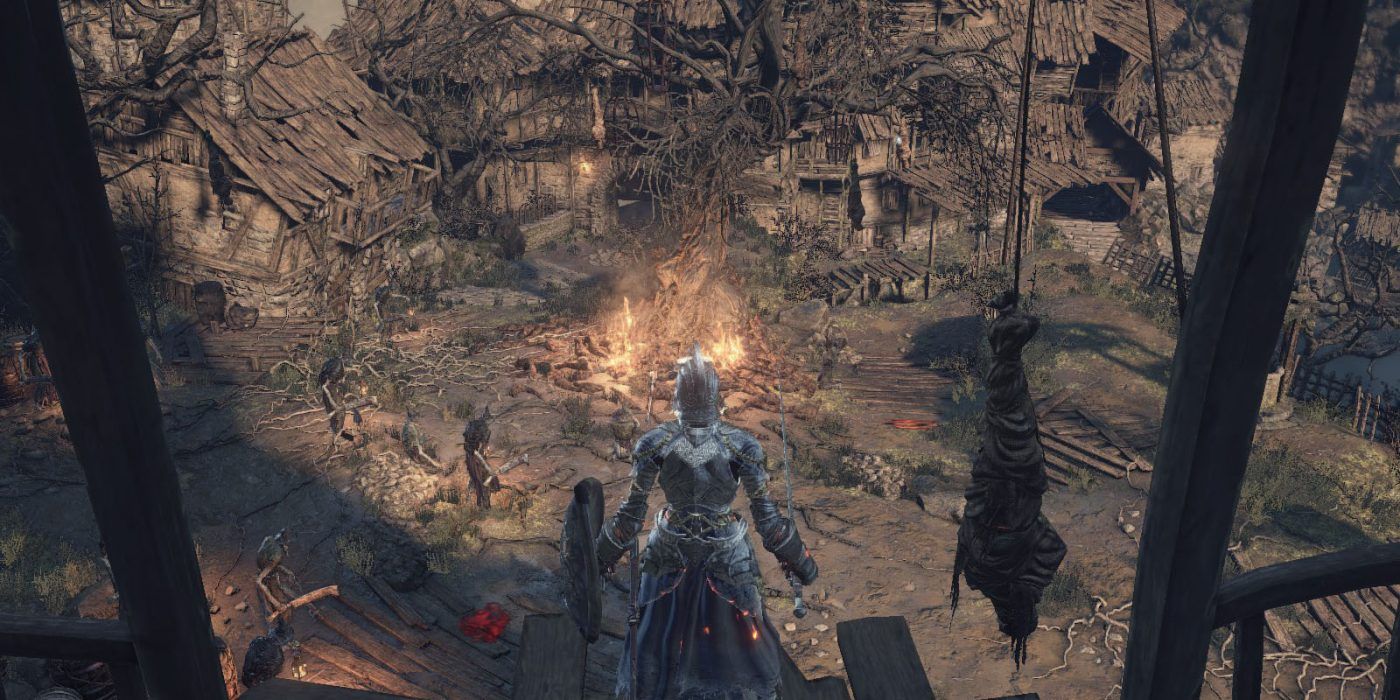Steamforged Games, the tabletop game developers behind the official Dark Souls Board Game and Dark Souls Card Game, have recently revealed a new upcoming adaptation of FromSoftware's iconic Dark Souls computer RPG trilogy called Dark Souls: The Roleplaying Game, which could further flesh out the lore of the games. It's not yet clear whether Steamforged Games seek to create a combat-focused tabletop RPG with tactical rules for simulating the challenges of high-risk battles or a more narrative RPG about the pathos of being Undead. Regardless of what approach they take, Steamforged Games, through their new RPG project, have a great opportunity to flesh out the ambiguous lore of the Dark Souls universe - or give players the storytelling tools they need to create their own interesting lore.
Computer RPGs in the "Soulslike" genre - first articulated in FromSoftware's PlayStation exclusive action RPG Demon's Souls, then codified across the three games of the Dark Souls trilogy - owe a lot to the exploratory gameplay of tabletop RPGs like old-school Dungeons & Dragons, the Fighting Fantasy solo RPG books of Steve Jackson, dungeon-crawling Roguelike video games, and FromSoftware's own King's Field RPG series from the 1990s. The protagonists of "Soulslike" games are not demigod heroes who can effortlessly carve their way through hordes of enemies, but vulnerable, mortal beings who will die a grisly death at the hands of titanic bosses or swarming enemy mobs if they get careless or back themselves into a corner. The gameplay of most Soulslike games encourages players to learn from each death their PC suffers, adapting their tactics and load-out of weapons, armor, spells, and consumable items in order to overcome obstacles or turn an enemy's strength into their weakness.
Every single installment of the Dark Souls series takes place in an apocalyptic age where the Curse of the Darksign spreads among humanity like a plague, turning them into deathless immortals while slowly eating away at their souls and minds; to curse this plague of un-death, players characters in the Dark Souls games generally must travel through a series of lands filled with traps and perils, defeating powerful beings, consuming their souls, and dying repeatedly in the process. The story of the Dark Souls games is generally revealed to players through item descriptions, enigmatic dialogue from NPCs, and set-pieces in the game world, leaving many unanswered questions and ambiguities the upcoming tabletop RPG adaptation of Dark Souls might be able to address.
Dark Souls RPG Could Let Players Decide What The "Good Ending" Is
The default end-goal of most sentient Undead in the Dark Souls games is to find a way to stop the curse of the Darksign from turning themselves - and all of humanity - into mindless "Hollow" zombies. In the short term, Undead individuals in the Dark Souls universe can cling to their literal and metaphorical humanity by devoting themselves to a meaningful goal or grand quest (a metaphor of sorts for the mentality needed to beat challenging, difficult video games like Dark Souls). In the long run, the Undead Curse can be banished for a time if a powerful Undead, brimming with power drawn from the souls of mighty foes, either sets themself aflame to renew the fading Age of Fire or snuffs out the First Flame in order to usher in an Age of Dark.
Those aligned with the gods of Dark Souls see the "Linking of the Fire" as a noble act of sacrifice that renews the world, while characters affiliated with factions such as the sinister-sounding Darkwraiths or the Sable Church of Londor claims an Age of Dark will liberate humanity from the oppression of the Gods and let them achieve their true potential. The Dark Souls video games offer evidence to support both these interpretations without ever outright stating what the "good ending" is; in this spirit, the upcoming Dark Souls Roleplaying Game might be better off giving Game Masters and players storytelling tools to create their own take on the "secret history" of Dark Souls – branching story paths, multiple mutually exclusive lore entries for iconic characters, and a set of horrible/beneficial potential fates for player characters whose choices usher in the Age of Dark.
Dark Souls RPG Could Flesh Out Unseen Kingdoms
The most famous and beloved characters of the Dark Souls franchise - Solaire of Astora, Siegmeyer of Catarina, Orbeck of Vinheim, Lucatiel of Mirrah - frequently have the names of their home kingdoms as part of their titles. Vinheim, for instance, is famous for its academies of sorcerers and slinking assassins, while the knights of Catarina are famous for their boisterous attitudes and onion-shaped suits of armor. Players never really get to visit these fantasy kingdoms during the Dark Souls games, invariably because their PCs are exiles who were banished from their homelands when they contracted the curse of Undeath.
The Dark Souls Roleplaying Game made by Steamforged could give FromSoftware fans a chance to experience stories and adventures within these tantalizingly enigmatic fantasy realms. They could do so as ordinary mortal humans living in times of peace or as recently cursed Undead in a time where the Darksign spreads rampantly across the land. Whatever their preference, the potential for adventure is there.
Dark Souls' Roleplaying Game Could Show The Undead Curse
Imagine what it would be like to live in the fantasy setting of Dark Souls during a time where the First Flame is fading. One day, a friend, family member, or lover suddenly acquires a strange mark on a part of their body and the ability to devour the life energy of those they slay. When they suffer a mortal injury, they can reform themselves by the nearest bonfire, but every single death and discouraging setback they suffer chips away at their physical appearance, memories, and cognitive faculties. There's no happy ending for this Undead individual; if they don't lose their sense of self and become a murderous Hollow, they'll instead get hunted down by packs of zealous clerics, thrown into one of Dark Souls' dungeons, press-ganged into armies and forced to fight endless wars, or sent off on quests to find a cure for their condition, never to be seen again. And this could happen to anyone.
Through its Dark Souls Roleplaying Game, Steamforged Games has the opportunity to tell stories the Dark Souls video games couldn't. Stories grounded in the reality of a world cursed by a plague of Undeath and the havoc this would wreak upon families, villages, kingdoms, and cultures. By introducing narrative rules for how relationships, dreams, and memories of Undead PCs are steadily worn down over time, a Dark Souls tabletop RPG could really explore the pain, alienation, and social consequences of Undeath, while also highlighting the nobility, kindness, and warm humanity of individuals who stand up from the Bonfire once more and decided to do something about it.




